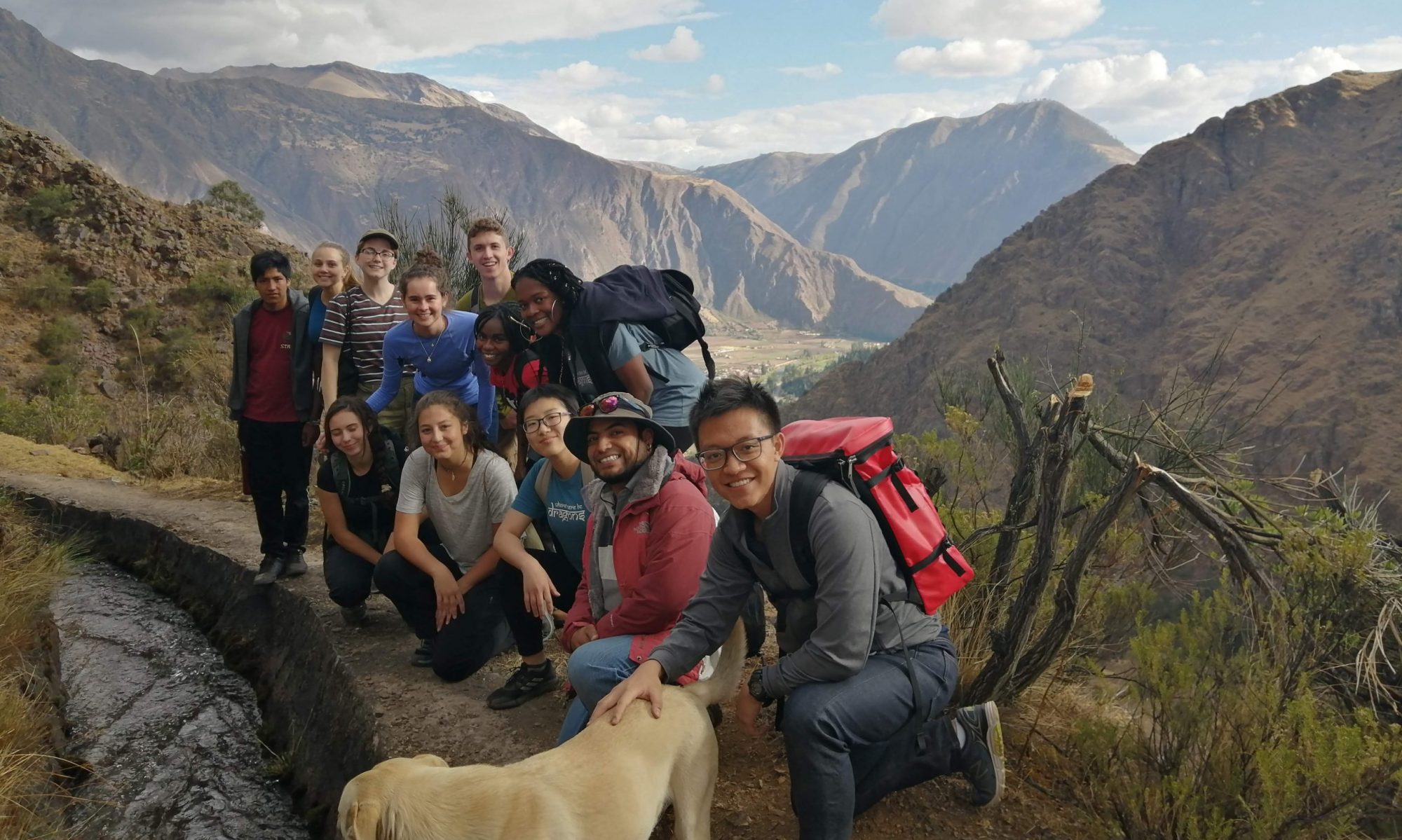by Austen, Tufts Civic Semester Participant

To put it mildly, I’m not the best with directions.
One of my biggest worries about spending three months in Urubamba was spending three months without the assistance of Google Maps, which has always been my guiding light, whether I’m driving somewhere new or walking around my own neighborhood. As someone who had to use a GPS during the drive to school every morning sophomore year (it was about three turns away), this was a legitimate concern. Walking solo to Spanish class, or to my favorite cafe (Antojitos obviously), or to the gardens where I work seemed like an impossible feat.
Thankfully, a few weeks in I found my compass; the central market. It’s one of my favorite places, and it’s always easy to find. It sprawls out over about two square blocks, is characteristically noisy, and everyone in the city can point you to where it is. If I know where I am in relation to the market, I can find almost anything else. And even better – because I go there so often, I can find everything inside the market! It’s great.
This spectacular plan failed about a week ago. Last Thursday, it was announced that the big indoor market was going to be closed for cleaning, much to the dismay of both the women working there and the people in my group. We took one last trip to the market to stock up, assuming that we wouldn’t have access to life-saving staples like yuca sticks and chocolate covered raisins during the upcoming weekend. The next morning, I made a trip past where the market was – and for the first time in weeks, found myself utterly lost.
All of the streets surrounding the market had been closed off to make way for a hundred vendors, selling fruits, vegetables, meats, and our beloved snacks beneath the bright blue shade of their tarps and umbrellas. The women of the market had single-handedly turned their city into something unrecognizable. Once I entered, the effect was both beautiful and disorienting. The sky was completely blocked out, pieces of the city only visible through chinks in the plastic armor valiantly protecting produce from the sun and heat. All of the market stands were in an unfamiliar order (to my dismay), and everything was washed in a watery glow. It was impossible to see what was at the end of each blue corridor until I was just a few feet away. All in all, it was otherworldly and stunning and very, very unhelpful for someone with my gift of navigation.
After several minutes of struggling to exit the maze I had unwittingly trapped myself in, I eventually made it to the Plaza de Armas, feeling like I’d just solved a particularly grueling sudoku puzzle. Of course, I had to brave those uncharted waters again the next evening; I spent approximately four hours hunting for strawberries. Little by little, however, a mental map of my surroundings began to emerge. The fruit vendors were on Huascar street, the grains were parallel to the meats, chocolate quinoa could be found on a little offshoot. By day three, I had a brand new compass.
Sensing this, the outdoor market disappeared the next day. I was both relieved and disappointed.
Being in Peru has been an exercise in adapting to change; change in language, diet, environment, and culture. Even during the time we’ve been in-country, we’re constantly relocating, getting to experience life in touristic cities like Aguas Calientes as well as rural mountainous towns like Cancha Cancha and Paru Paru. At times, it’s felt more than a little disorienting. There’s not a map available to show us the best ways to spend our time, help our internships, or even find our way through the market. Even if there were, as my many lost hours searching for strawberries have proved, routes in Urubamba are always unpredictable and changing. We have to figure things out the old fashioned way, by stumbling around until we find our way through them.
As much as I miss the security of Google Maps and a predictable schedule, I’m certain that I’ve gained more than I’ve lost through the past few months of trial and error. I still may not be able to find my way out of a paper bag, but I understand more about how to deal with uncertainty, and I have more faith in my ability to navigate unfamiliar territory (both literally and metaphorically). I’ll keep my GPS, though, just in case.
Originally posted here.






